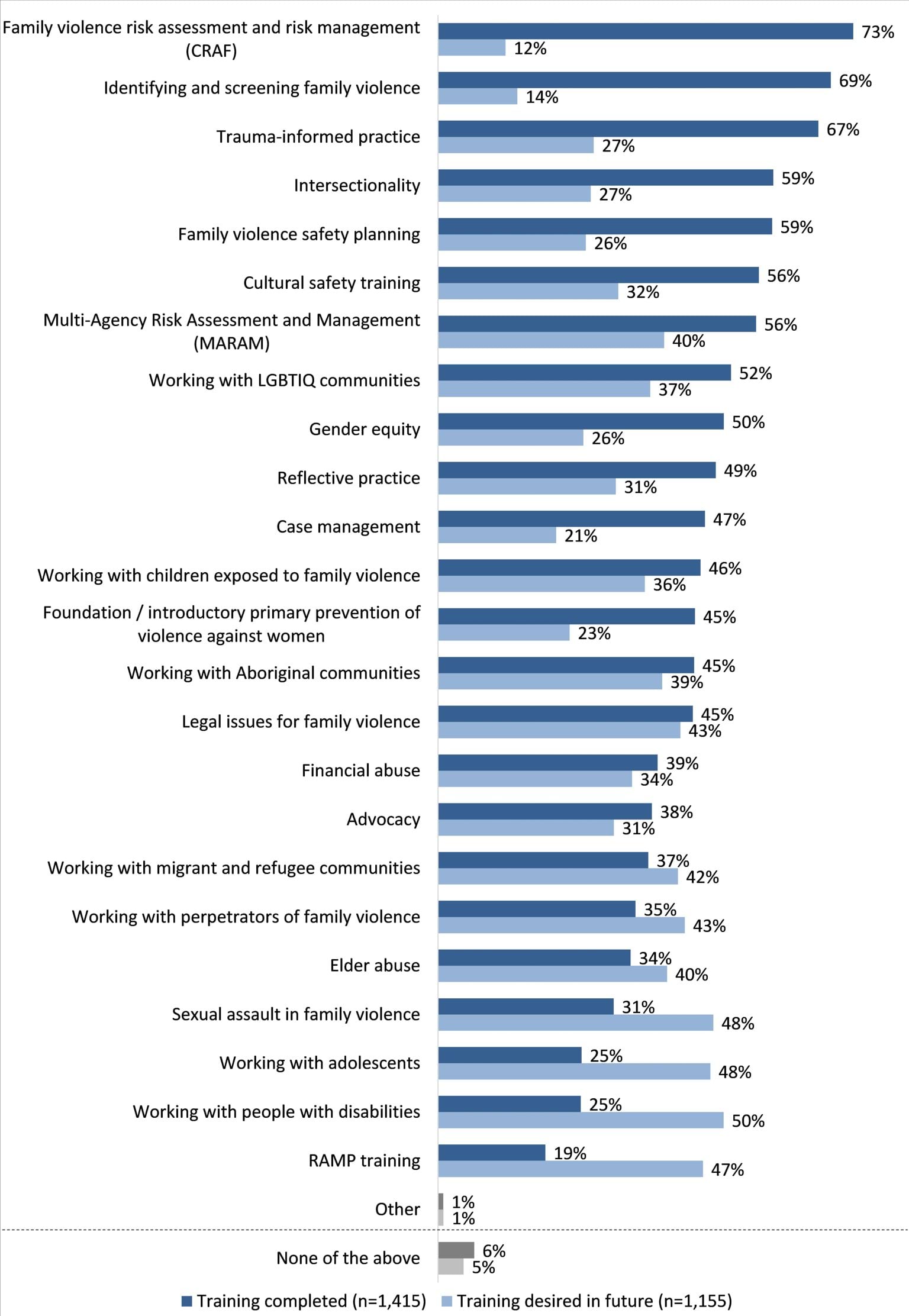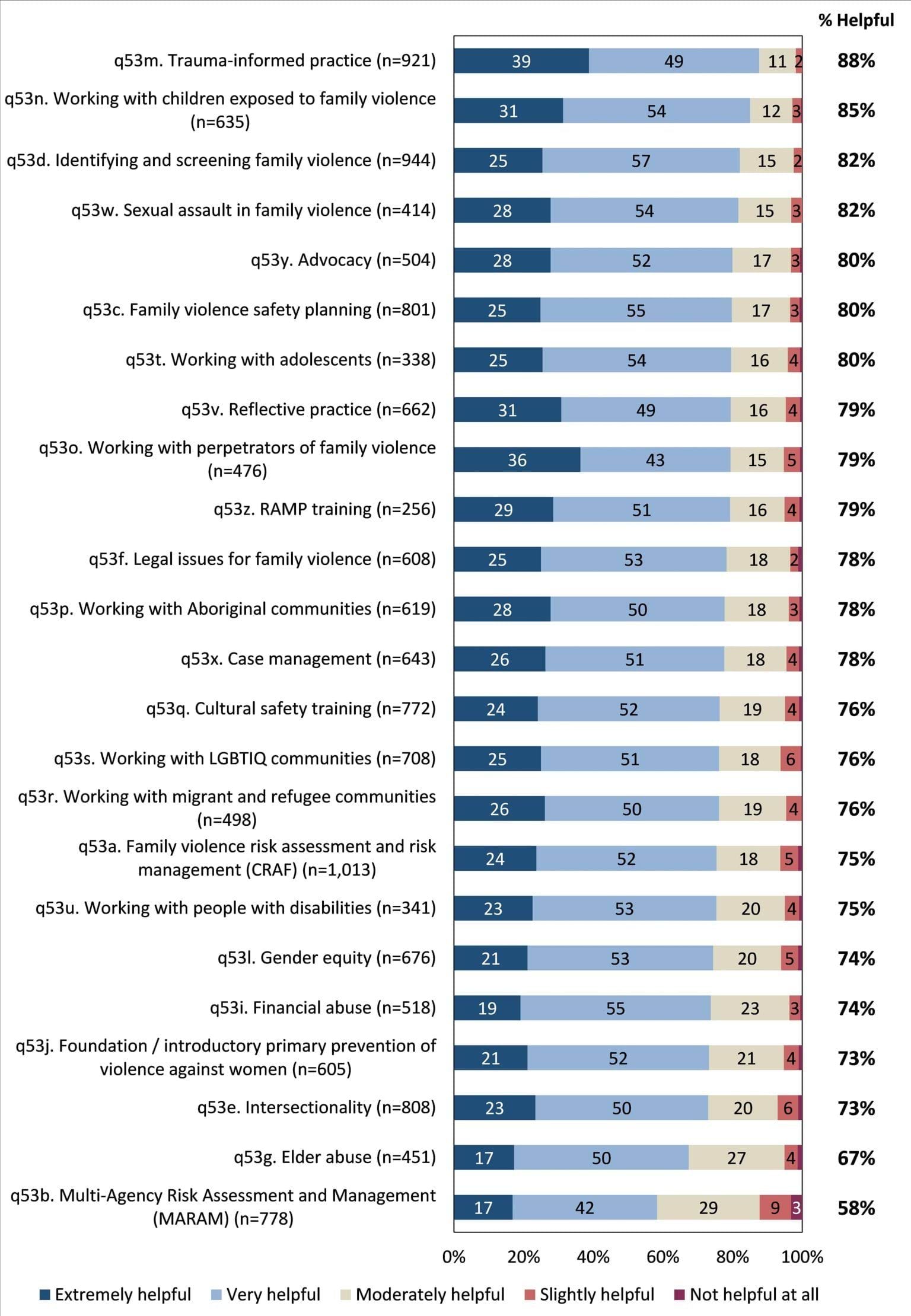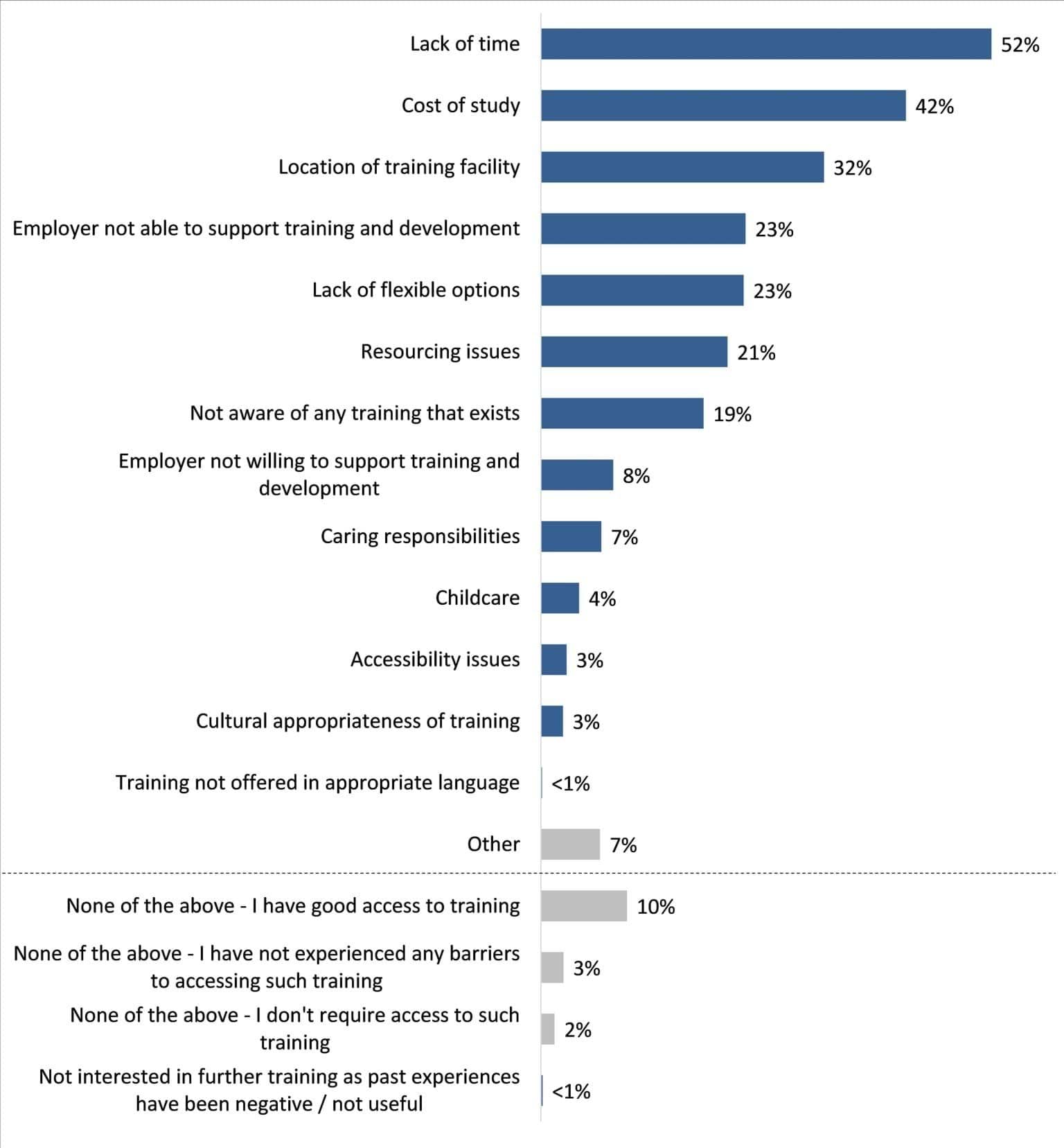The specialist family violence response workforce was asked to identify both the family violence prevention and response topics that they had completed training in, and those they would like further training in.
As illustrated in Figure 13, at least two-in-three respondents had completed training in relation to:
- family violence risk assessment and risk management (CRAF – 73%);
- identifying and screening family violence (69%); and
- trauma-informed practice (67%).
The topics which respondents felt they required further training in were generally those with lower completion rates, including training related to:
- working with people with disabilities (25% had completed training, 50% desired further training);
- working with adolescents (25% had completed training, 48% desired further training);
- sexual assault in family violence (31% had completed training, 48% desired further training); and
- RAMP (19% had completed training, 47% desired further training).
Those who had completed training in each topic area were then asked to assess the degree to which they believed the training had assisted them in undertaking their work more effectively. Figure 14 shows that perceived helpfulness was high across most topic areas, and was highest in relation to training in:
- trauma-informed practice (88% found training in this topic to be ‘extremely’ or ‘very’ helpful);
- working with children exposed to family violence (85% felt this was ‘extremely’ or ‘very’ helpful);
- identifying and screening family violence (82% felt this was ‘extremely’ or ‘very’ helpful); and
- sexual assault in family violence (82% felt this was ‘extremely’ or ‘very’ helpful).
In contrast, although the proportions were not particularly low (still greater than half), respondents were least likely to feel that training undertaken in the following topics was helpful, suggesting that there is an opportunity to review and improve training in these areas:
- MARAM (58% felt this was ‘extremely’ or ‘very’ helpful); and
- elder abuse (67% felt this was ‘extremely’ or ‘very’ helpful).
When asked about barriers to accessing further training and development in relation to family violence response or prevention, the three main barriers identified by respondents were:
- lack of time (52%);
- cost of study (42%); and
- location of training facility (32% – see Figure 15).
Updated


